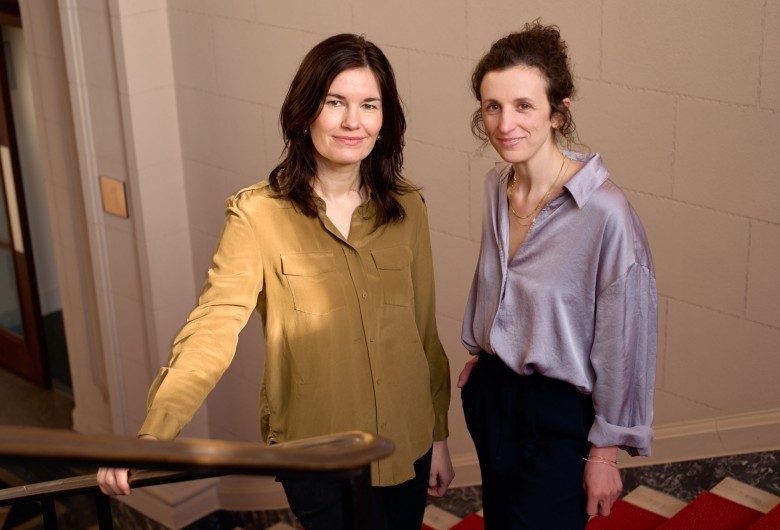With the aid of AI, Ghent-based company AlfaSent is able to recognise emotions in texts. It’s a prime example of language technology, an area that is rapidly gaining ground. Founder and UGent alumna Ellen De Geyndt: “I’ve always been interested in both language and technology but I wasn’t aware that I could combine the two.”
AlfaSent is a typical example of a spin-off, a business founded on the basis of research results. These often emerge on the fringes of the engineering or science faculties but in this case it’s a spin-off of the faculty of Arts and Philosophy. This is because the faculty has been focusing on language technology for some time now and recently introduced a unique language technology training programme.
Founder Ellen De Geyndt herself trained as a linguist. “But once I’d graduated, I asked myself: where do I go from here? I didn’t want to work as a translator so I briefly considered becoming a teacher. In that period I attended an info session on 'Computer-Assisted Language Mediation', a new postgraduate programme. I was instantly triggered by the combination of language and the technical aspect.”
Is that where you learned how to use language in a different way?
“For the most part. During my Applied Linguistics studies at Ghent University I already had a few subjects related to language technology but those disciplines were just emerging at the time. Afterwards I truly learned how to program in Python and how language and software can go hand in hand.”

How did you eventually make the switch to founding a software company?
“After my studies I found a job as a language engineer but I found that my true interest lay in other language technology applications. When I noticed a job opening for a related research project at UGent, I didn’t hesitate for a second. It was the perfect opportunity to pursue my passion.”
AlfaSent was born from that research project. What is it exactly?
“AlfaSent is a software company that uses AI-based software to help businesses analyse feedback faster. Think of hotel reviews, for instance. Customers comment on the location of the hotel, staff friendliness or breakfast quality. Our software analyses these comments and creates a dashboard rendering the most important customer topics and emotions.”
You analyse the emotions in those reviews?
“That’s right. We analyse the sentiment in customer reviews. For instance, if you write in a review that the breakfast was so good that you’d come back for breakfast alone, this means you didn’t just think that breakfast was good but that it was exceptional. We teach the software to recognise this nuance so that a company doesn’t just see that there’s positive feedback but that the feedback on breakfast, in this case, is exceptional. Over time AlfaSent has to be able to do this autonomously and learn new things from the context.”
How do you see the future of AlfaSent?
“It’s early days to be able to say how far we will go but our goal is to build a solid customer portfolio and grow as a company. Right now we are targeting larger SMEs and growing companies but who knows where we’ll be in a couple of years. It’s not our ambition to become the country’s biggest start-up but we do want to grow alongside our customers and make strides.”
Read also
Ghent University to train the language technologists of the future
At the Faculty of Arts and Philosophy, starting next academic year, you can opt for an educational track to become a language technologist. A sought-after profile on the job market, so it seems.
Read also
Are classical languages still of any use?
With clock-like regularity the debate pops up about whether studying Greek and Latin is still useful. Some claim that classical languages are useless on the job market. For others, they are the foundation of our society. What should we think about that? We asked hellenist Evelien Bracke and got a nuanced answer.
Ghent University to train the language technologists of the future
At the Faculty of Arts and Philosophy, starting next academic year, you can opt for an educational track to become a language technologist. A sought-after profile on the job market, so it seems.
Cruel summer? Not for this UGent’er
This summer it was hard to miss: at Ghent University you would soon be able to take a “Taylor Swift-class”. A storm of reactions blew up, the crackle could be heard all the way to the United States. In the eye of the storm: professor Elly McCausland and her elective course Literature (Taylor’s version). “It was a lot, but I’ve grown quite a thick skin.”




